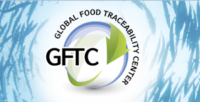IFT Global Food Traceability Center Receives Research Grant
The Institute of Food Technologists (IFT) Global Food Traceability Center (GFTC) has received a grant to conduct research into the impacts of traceability on consumer attitudes and business performance in the seafood industry from the Gordon and Betty Moore Foundation.
The purpose of this project is to strengthen the performance and proficiency of the seafood industry by providing knowledge about the impact of traceability on reduction of waste, enhancement of consumer trust and increase of business efficiencies. Additionally, the project will deliver a software application that can be used by stakeholders seeking to better understand their return on investments in traceability solutions.
“We are truly excited to receive this important and timely grant from the Moore Foundation. This project fits perfectly with the Center’s vision to become the global resource and authoritative voice on food traceability,” said William Fisher, IFT Vice President of Science & Policy Initiatives and Executive Director of the Global Food Traceability Center. “Consumers around the world are much more knowledgeable and demanding about the food they purchase. Consumers are seeking transparency about the food they eat including labeling, sustainable practices and information about from where their seafood comes.”
“We look forward to partnering with IFT on this project,” said Meredith Lopuch, a program officer with the Moore Foundation’s Marine Conservation Initiative. “IFT will draw on their deep expertise and connections in food systems to develop a decision support tool that we hope will allow companies to see individual value in traceability.”
The Global Food Traceability Center is a not-for-profit collaborative, public-private partnership. It brings together key stakeholders in the agri-food system to collaborate on timely product tracing solutions and serves as an authoritative, scientific, and unbiased source for food traceability. The Center will assist companies to leverage traceability so they can more rapidly and reliably trace the paths of products through the supply chain, increase business efficiencies, and reduce waste.
Looking for a reprint of this article?
From high-res PDFs to custom plaques, order your copy today!



